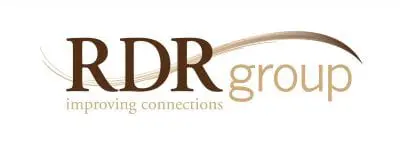One diversity issue that is particularly challenging and complex is religious diversity. Every single person who enters your workplace has an opinion about religion—sometimes a very strong one. So a lot of workplaces choose to ignore the subject completely to avoid potential controversy. But since being religious, or spiritual, is so important to the vast majority of the American population, do we actually increase the risk of offending coworkers and customers by remaining ignorant?
In the United States, 91% say they have faith in something—God, a Higher Power, a spirit world, something more than meets the eye. In rounded percentages, about 70% are Christian, 16% unaffiliated (spiritual but not religious), 2% Jewish, 1% Muslim, 1% Buddhist, 1% Hindu, 4% Agnostic, 3% Atheist, and 1% don’t know.
Each of these worldviews has a different set of beliefs, their own authoritative writings, different rituals and honored days. So where do we start? Well, it is helpful to have a basic understanding of the five major religions—it is part of being culturally competent. We can do this by attending services of other religions, building friendships, asking questions, and engaging in some form of inter-faith dialogue (online or with a local group).
It also includes having an understanding of why some people choose to opt out of traditional religion altogether (atheists, agnostics, and the unaffiliated). This exploration of other perspectives does not require changing your own religious affiliation or convictions (or lack thereof)—it is simply for awareness and understanding, and to gain greater cultural competence, so you can connect better with coworkers and customers.
After a lifetime of knowing very little about other religions, and having no regular inter-faith dialogue, my wife and I attended an inter-faith Thanksgiving service in 2009. It was eye-opening and life-changing. We realized that, up to that point, we were tragically ignorant about what other faith traditions believed (which is true of about 92% of Americans). We had many false ideas and a lot of stereotypical perceptions about Hindus, Jews, Buddhists, Muslims, and the non-religious (and vice versa).
By 2010, we were actively involved in an online inter-faith group (which also included people of no faith), whom we have stayed connected with ever since. The amazing thing is how much we have in common—a longing to connect with something greater; love of family; strong moral values; and commitment to peace, justice, compassion, and mutual understanding. When it’s not about trying to convert others or debate our differences, and it is strictly about learning and building friendships, it is amazing how transformative it can be.
How does this help in the workplace? Overcoming ignorance, fear, and bias, makes us more comfortable interacting with customers and coworkers who operate from a completely different belief system and set of cultural norms. We learn to appreciate the differences rather than be annoyed by them. We are better equipped to connect and show respect and understanding for different worldviews, traditions, dress, customs, etc.
It also teaches us to live by the Platinum Rule (which is a multicultural spin on the Golden Rule): “Treat others the way they want to be treated.” When we learn to appreciate and honor someone’s core convictions, we will more easily connect with them at a deeper level, and it forms the beginning of mutual respect and loyalty. I have seen this firsthand, and it is powerful.
If you would like to learn more, I have a lot of great ideas and would love to chat with you about how to start an online forum; or, if you are interested, RDR Group also offers a free half-day pilot on “Religious Diversity in the Workplace.” Please connect with Rich at rich.brandt@rdrgroup.com.















